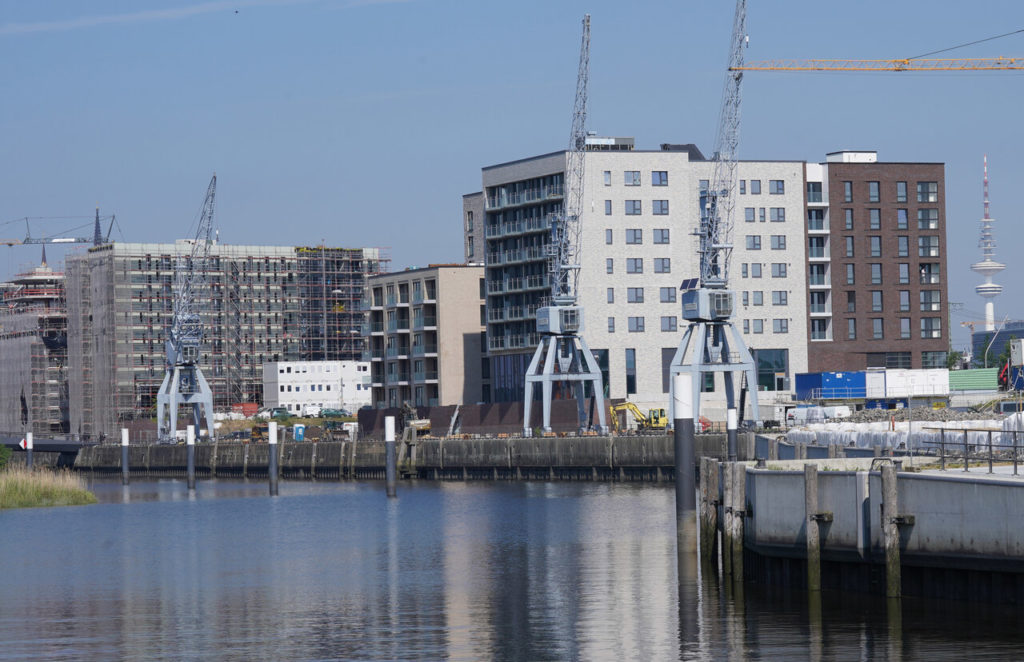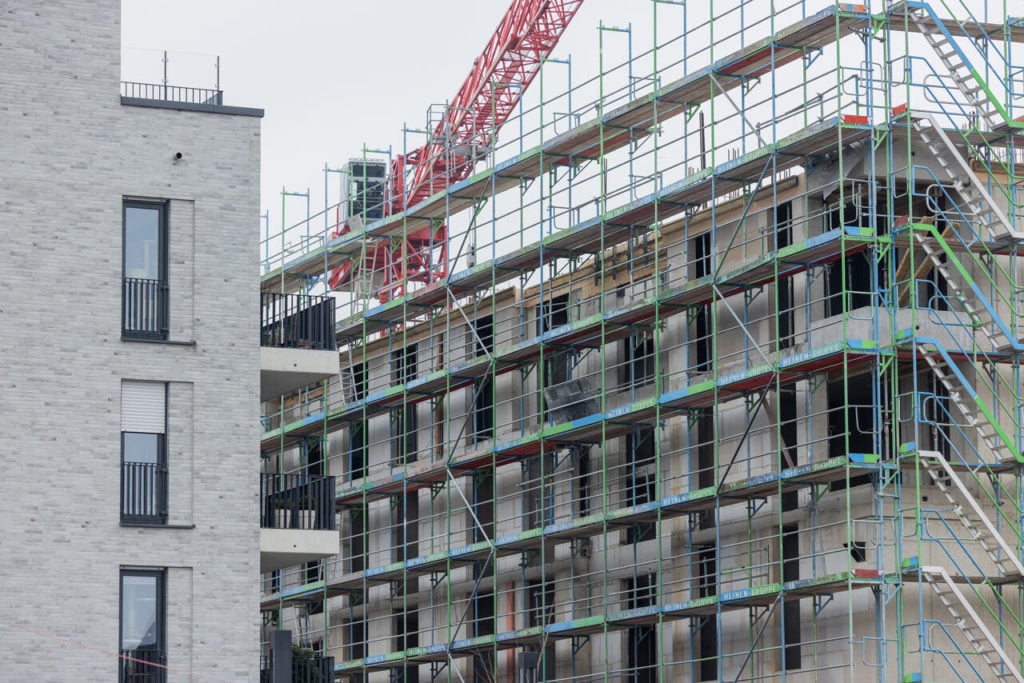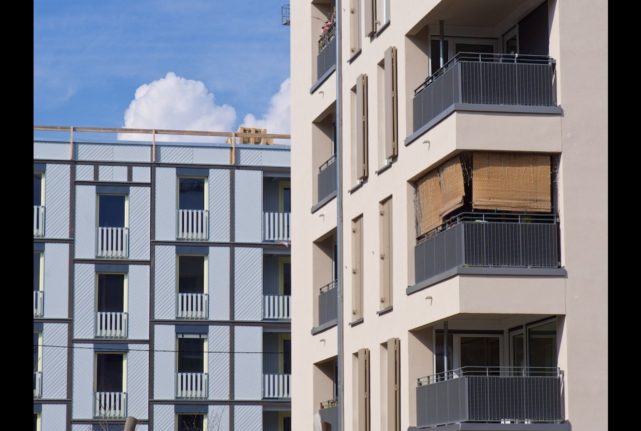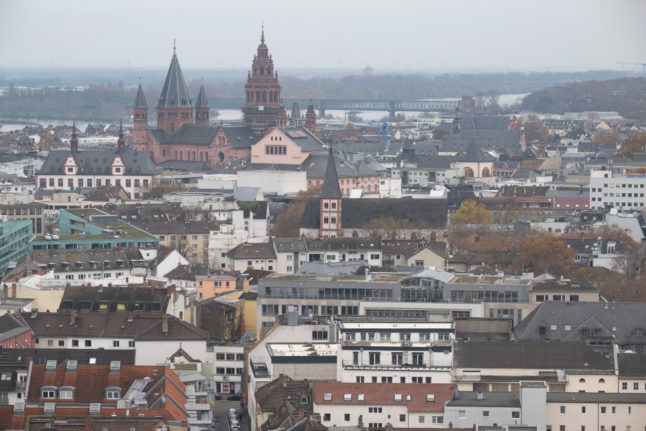Berlin
Rents in the capital have shot up recently.
At the beginning of March, real estate portal Immowelt published a report which showed that, between November 2022 and February 2023, the average rental price per square metre in Berlin rose from €9.86 to €12.55 – an increase of 27 percent.
Prior to this spike in rental prices, Berlin was in the middle of the ranking for rents in German cities with more than 500,000 inhabitants. Now, it’s the second most expensive city in Germany to rent in.
READ ALSO: Berlin rental prices rose by ‘almost a third’ in three months
According to the most recent report on Berlin’s real estate market by realtors Engel & Völkers, there are currently 137,000 apartments too few in Berlin, which is contributing to the increased prices.
Over the last ten years, rents in the capital have increased by approximately 60 percent.
A recent report by real estate portal Immoscout24 also found that, in 2022, rents for new build apartments in Berlin averaged around €17.19 per square meter – an increase of 0.6 percent compared to 2021.
According to the report, the most expensive district in 2022 was Mitte, where the average rent was €15.47 per square metre, followed by Charlottenburg-Wilmesdorf (€15.00) and Friedrichschain-Kreuzberg (€14.85).
Hamburg
Rents in Germany’s second-biggest city by population, have also been moving upwards, though not quite as steeply as in Berlin. In the three months from November 2022 to February this year, the average rental price in the city sunk by one percent from €11.53 per square metre to €11.46.
The longer-term picture, however, shows a steady rise in rents.
According to the Immoscout24 study, over the past five years, landlords in Hamburg have increased basic rents by an average of 18 percent.

In 2022, rents for existing buildings rose by 11.9 percent and for new buildings by 8.5 percent. The price per square meter is currently €12.86 for existing buildings and €14.98 in new ones. Broken down by neighbourhood, there are smaller differences than in Berlin.
The two cheapest districts in Hamburg are Bergedorf and Harburg, where the price per square metre for existing apartments costs €11.59 and €11.70 respectively. For new build apartments, the cost in these districts is €14.35 and €14.30 respectively.
READ ALSO: OPINION: Germany’s ruthless housing market is tough on new tenants – but there are winners
In the city’s most sought-after locations – HafenCity, Harvestehude, Uhlenhorst and Rotherbaum – there are no rental units to be found for under €19 per square metre.
Munich
With a current average rental price of €17.39 per square metre, Munich is by far the most expensive city in Germany to rent in.
Though in the three months between November 2022 and February this year, rents rose by only 4 percent, last year, rents rose by an average of 9.2 percent for existing apartments and 12.8 percent for new builds. In 2022, tenants paid around €17.77 per square metre for existing apartments and as much as €21.37 for new builds.
READ ALSO: Why Germany is seeing the ‘worst housing shortage in 20 years’
When broken down by district, some of the price increases for rents in Munich are enormous. In the Schwanthalerhöhe district, for example, rents for new build apartments rose by 24.1 percent in 2022. Twelve other neighbourhoods also saw an increase of at least 20 percent in the price per square metre of new build apartments last year.
However, there are still some relatively reasonable rental prices available in Munich. In the districts of Aubing-Lochhausen-Langwied and Feldmoching-Hasenbergl, the price for existing apartments is less than €16 per square meter. For new-build apartments, the most affordable neighbourhoods are Milbertshofen-Am-Hart and also Aubing-Lochhausen-Langwied, where the price per square meter is under €18.
Cologne
Compared to the three largest cities in Germany, rents in Cologne have been increasing at a more steady pace. In 2022, rents rose by an average of 5.9 percent for existing apartments and 9.5 percent for new buildings: the current average price per square meter is €11.69 and €13.72 respectively.

For existing apartments, rents have been falling for six months in every district, but most sharply in Kalk, where there has been a drop of 4 percent. Currently, the city’s cheapest districts are Chorweiler, Mülheim and Kalk, where rents per square metre are less than €11 per square metre in existing buildings, and below €14 for new constructions.
READ ALSO: Why rents for some properties are starting to fall in Germany
Meanwhile, the Ehrenfeld and Nippes districts saw the biggest price jumps for new buildings in 2022.
Frankfurt am Main
In Frankfurt, rents rose by a comparatively moderate 5.9 percent for existing apartments and 6.2 percent for new builds in 2022. The price per square metre is currently on average €13.16 for existing apartments and €15.66 for new buildings. In the Central-West district of the city, rents actually fell by 0.1 percent last year and the price increase in new constructions was also the lowest in this district.
The most affordable district for tenants is Bergen-Enkheim, with a price per square meter of €10.60 for existing buildings and €13.65 for new builds. The next cheapest districts are Harheim, East and West. The most expensive district in Frankfurt for tenants is the city centre, where the average basic rent (without utility costs) is €20.78.



 Please whitelist us to continue reading.
Please whitelist us to continue reading.
Member comments